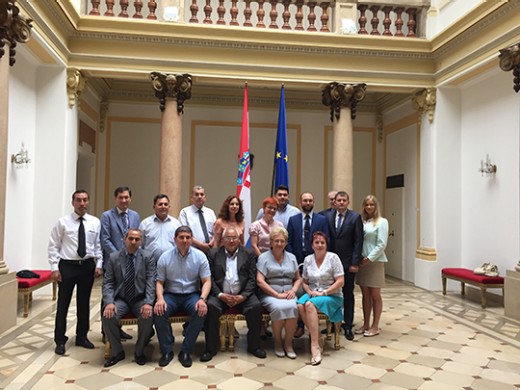Tuesday, 03/03/2026 | 18:03 GMT+7
Croatia is one of the recognized leaders in South-East Europe in the field of energy management, monitoring and assessment of the energy consumption, which are important aspects of the rational use of energy in buildings. That is why Croatia was chosen as the country for a study tour of officials and experts of Turkmenistan on energy conservation and management in buildings.

The Turkmen delegation included representatives of the State Concern “Turkmengaz”, the Ministry of Energy of Turkmenistan, the Ministry of Architecture and Construction of Turkmenistan, the Ministry of Communal Services of Turkmenistan and Turkmen State Institute of Architecture and Construction. The trip was organized by UNDP / GEF project “Improving energy efficiency in residential buildings sector of Turkmenistan.”
With support of UNDP/GEF, Croatia developed and successfully implemented the system of automated accounting and control of the energy consumption (electricity, heat, hot water and gas). At the moment, 127 public buildings are connected to the system of urban energy management.
"The system allows seeing schedules for consumption per hour, day, week or month for any selected municipal building; finding the nominal values, the characteristics of buildings and the results of the energy audit. The main advantage of the system is that it identifies leakages and accidents, and helps to make the right decision for troubleshooting in the system of energy supply. The system also allows identifying discrepancies between the number of released and actual consumption of energy,” shared Irina Atamuradova, UNDP program component manager for the low-emission development.
During the study trip, delegates studied the experience of coordination of plans for improving energy efficiency in rural and urban areas, the choice of energy sources - conventional or renewable energy sources, energy-efficient renovation and construction of energy efficient buildings.
In the city of Koprivnice participants got acquainted with affordable social housing for young families built using advanced energy-saving technologies. In the area of the sports complex, delegates were demonstrated the use of geothermal wells to heat water in the pool and the heating system of the complex.
As a result of the trip and given the great interest of the Turkmen delegation to the system of energy management in the buildings in Croatia, the UNDP project considers organization of energy monitoring and energy management demonstration system based on existing pilot residential buildings in the city of Ashgabat with the installation of modern software.
Truong Duy







